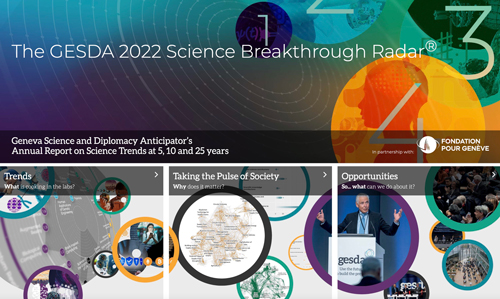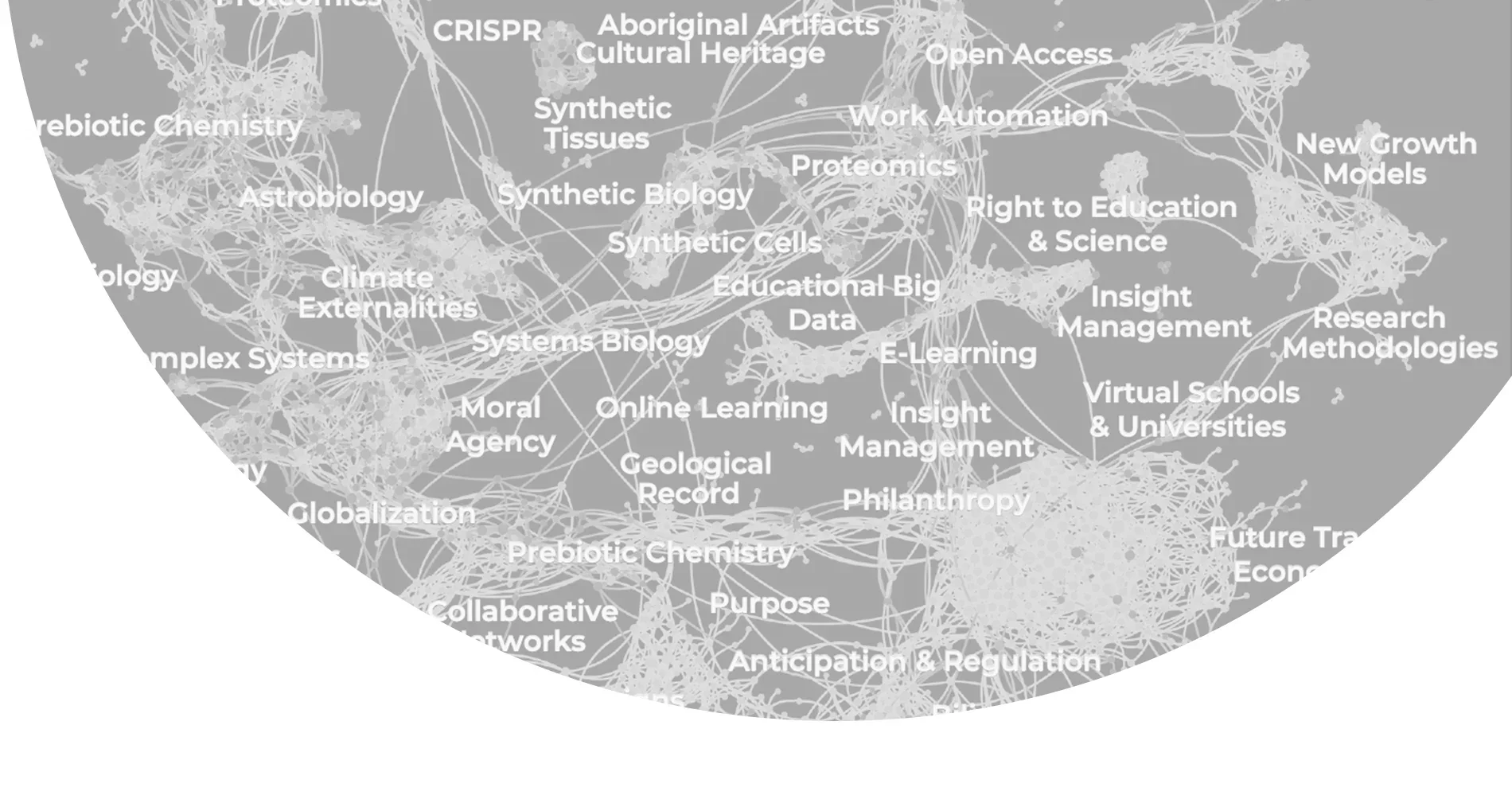18-34 year olds are dominating the discussion in these areas, and sentiment towards the topics of Complex Systems Science and Future of Education is more positive than the other Knowledge Foundations of Future Economics and the Science of the Origins of Life and Synthetic Biology.
Citizens are excited about new forms of education and learning opportunities and see them as necessary to stay relevant. Sentiment around future education is particularly positive in Asia, with a focus on how it can enhance skills and employability. This is driven in part by the general public, which points to strong competition in future job markets. However, there is disagreement on the accessibility of new education formats, with some arguing that they are accessible to all, while others criticise unfair disparities in access to digital platforms. There is also growing interest in understanding social development in wider society, which could be driven by current global crises. But discussions on the importance of social sciences are often limited to experts, suggesting a need for moderation between the two groups.
18-34 year-olds are dominating discussions about future economics, with men participating more often than women. Interestingly, rising automation and the implications for some jobs are not always seen as negative: there are discussions on how digitisation could open up new opportunities, while requiring new skills. Interest in future economies, trade and globalisation has grown considerably in the past 5 years, with a surge in interest during the COVID-19 pandemic. The Suez Canal blockage and the zero-COVID policy in China accelerated discussions around supply chain disruptions caused by single points of failure, and there are growing concerns about the stability of the globalised world as new crises occur. Interest in supply chains is higher on news sites and blogs, the circular economy is discussed more on social media. There is rising interest in the decoupling of economies, with support for less interlinked economies. This would increase resilience but could threaten free trade.
For our new topics, there is a disconnect between discussions on social media versus discussions on news and blogs. Social media discussions carry a stronger negative sentiment and are centred around the origins of life, while news and blogs report more heavily on synthetic biology. Social media discussions are also more influenced by publicity (for example, the publicity surrounding space missions) than by scientific research. Sentiment around the launch of the James Webb telescope is overwhelmingly positive, opening the possibility of using this topic to inform the public about related research.
Unsurprisingly, perhaps, sentiment is generally more positive on professional forums than in the wider public. But it is clear that the term “synthetic” carries a strong negative connotation due to mRNA vaccines against COVID-19: addressing such concerns may help increase public acceptance.
Within the sentiment analysis clouds below each node represents one article and the linkages between dots show relations between topics in the analysed data.
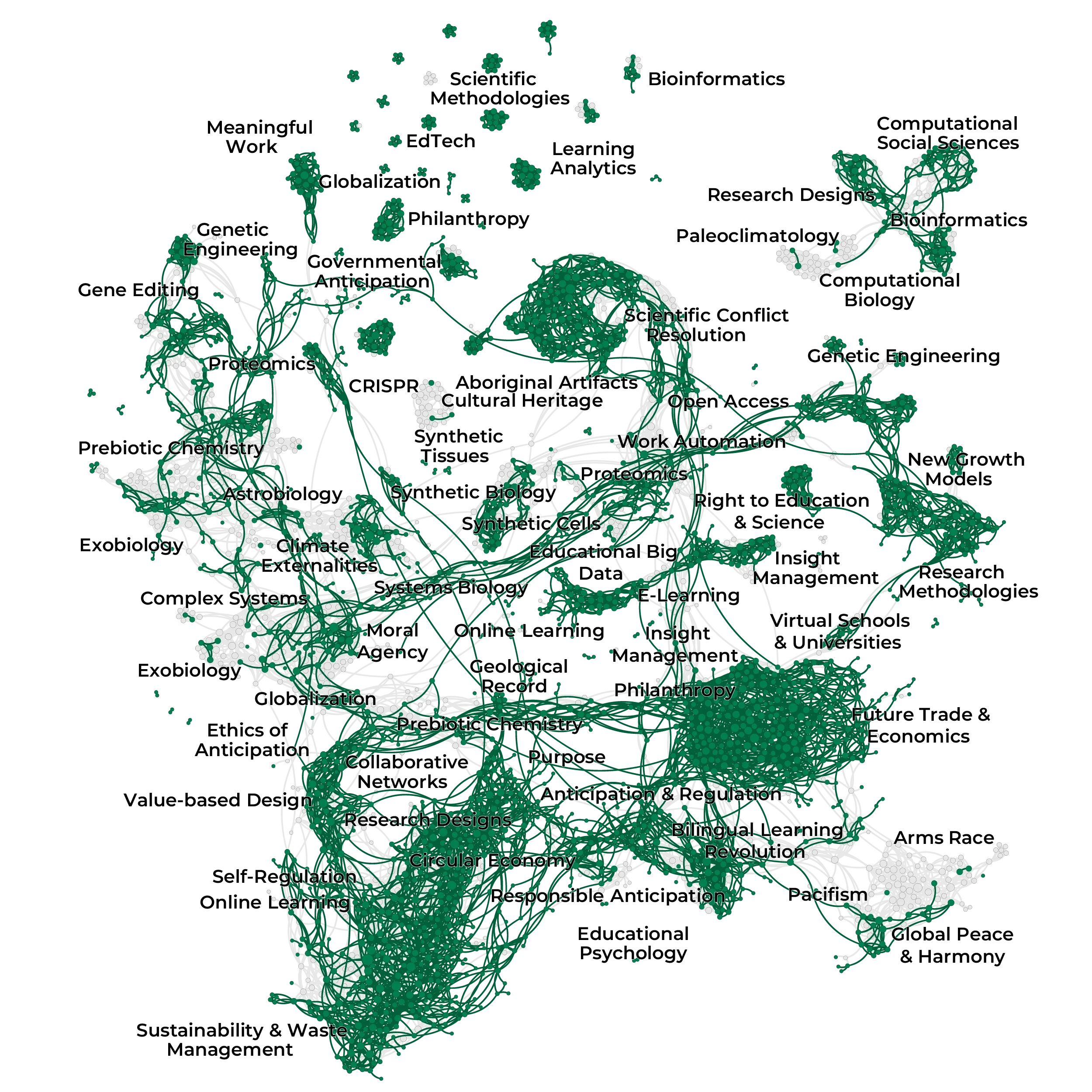
Positive sentiment is centered around:
- The transformation of education through EdTech, providing personalised and collaborative learning experiences, is received positively in news and blogs.</sup> There is also a growing positive sentiment towards purpose-driven actions: high school students championing chosen causes, and businesses shifting their models to better serve societal and global needs. Furthermore, the advocacy for purpose-driven work cultures, bringing increased productivity and satisfaction, further underlines this overarching trend of purpose shaping personal and professional identities.
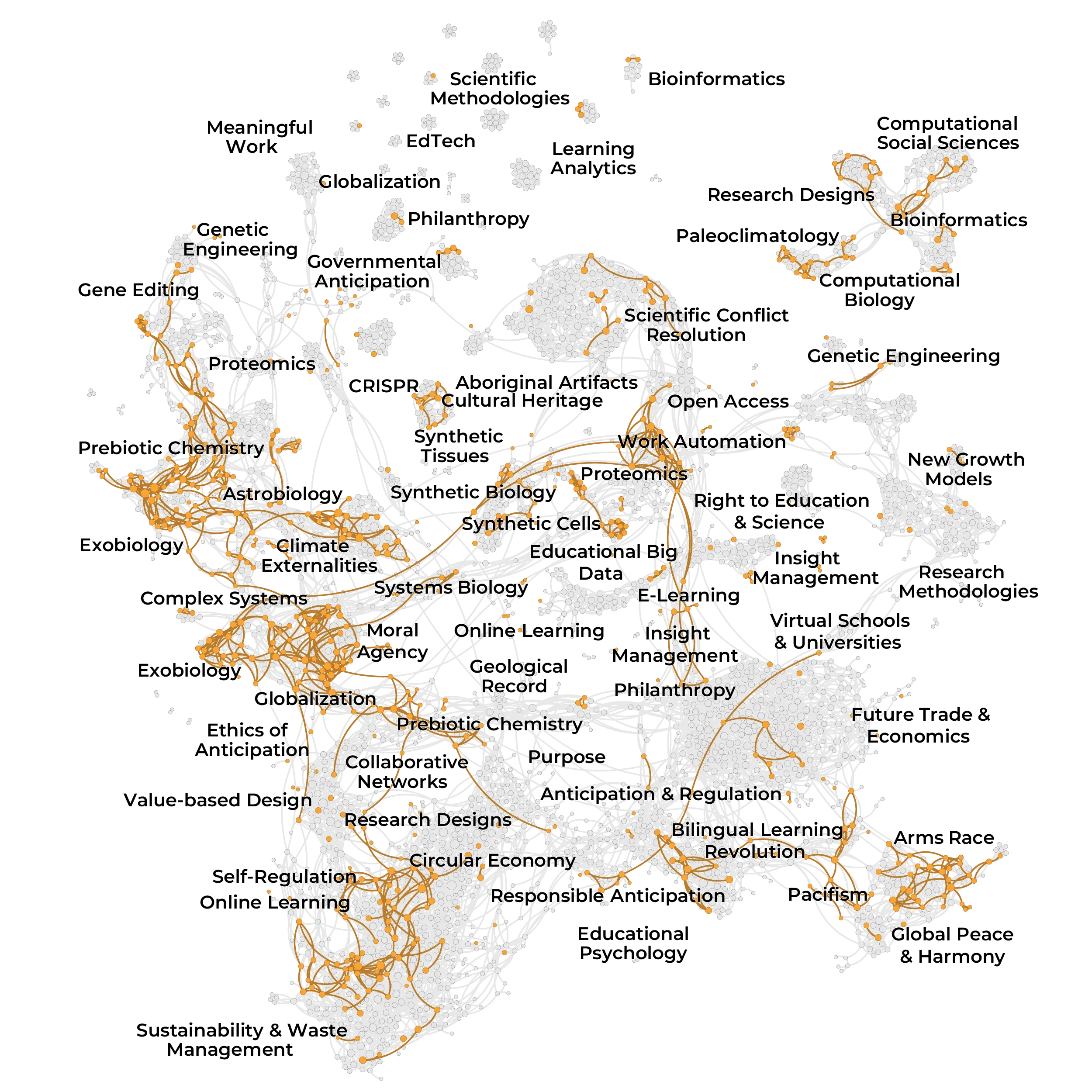
Neutral/mixed sentiment is centered around:
- The mystery surrounding life's origin generates mixed sentiments in news and blogs, as does the ground-breaking progress in synthetic biology. While advances in synthetic biology tools are considered to vastly improve therapeutic capabilities and expedite the creation of novel treatments, concerns about ethical implications, long-term effects, and potential risks are echoed in the discourse. On the topic of economics, the circular economy model is positively viewed as a solution for sustainable development, but changes to the global waste trade fuel both optimism and concern.
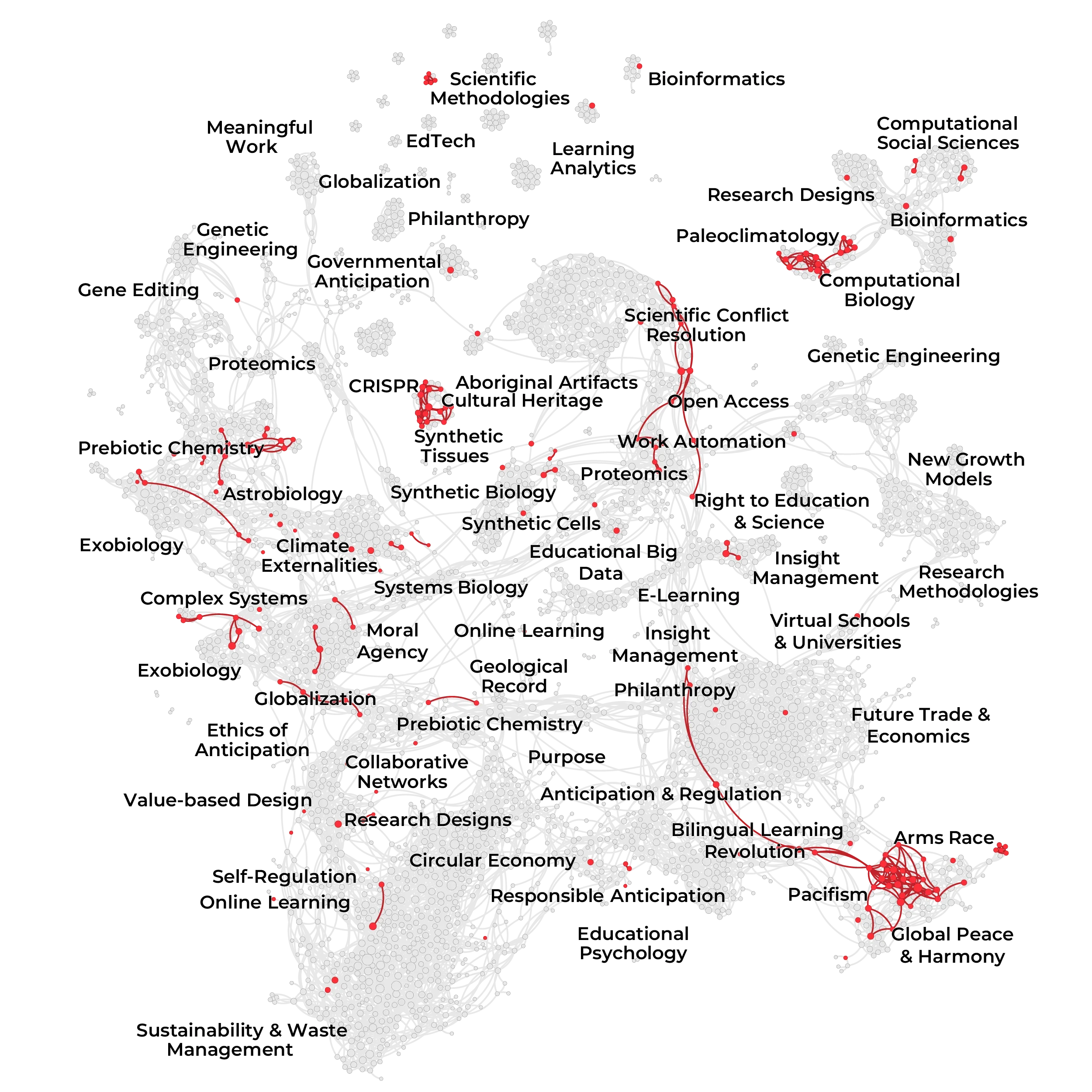
Negative sentiment is centered around:
- Significant advancements in gene editing technologies such as CRISPR are stirring up controversies and negative sentiments, including debates about the safety and regulation of inheritable genetic modifications. The uncertainty around these technologies and the potential long-term genetic alterations they could cause continue to fuel doubts. In terms of the geopolitical climate, global reports reflect rising apprehension and negative sentiments due to escalating conflicts and unresolved geopolitical tensions. There is a call for an urgent, new world order based on human morality, with a focus on ensuring global peace and solidarity amidst escalating discord.
